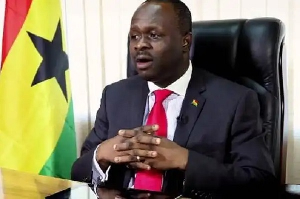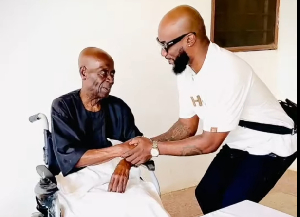My answer to this question is YES (what about yours?). The reasons for my answer are several. For example, we’re always explaining new ideas or events to our colleagues, co-workers, parents and more importantly to our children. Offering these explanations which involves the use of speech and sound is TEACHING; our aim is typically one—to let people understand what we’re saying.
Other people will understand us only when we sound our words accordingly. Sounding words correctly depends on two inter-reliant factors—knowing how to pronounce the words correctly and then pronouncing them aloud. Speaking aloud is a by-product of being able to pronounce words right.
In terms of teaching, perfect classroom control revolves around the teacher being heard at all corners of the class. Many teachers who talk to themselves during teaching usually lack confidence to pronounce words aloud because they are unsure of their pronunciation. The same holds true for students. Indubitably, the surest way to compound ignorance is inaudibility. To boost your confidence in speaking audibly, learn to pronounce words correctly.
Before giving additional reasons, I’d /pronounced ‘eyed’/ like to give you a much simpler way of handling pronunciation challenges. I’ve /pronounced ‘aiv’/ been able to classify words into two distinct groups—those that are SPELL-PRONOUNCED and those that are PRONOUNCE-SPELLED (Note these terms carefully.)
Spelling pronunciation means pronouncing a word based on its spelling (the letters that combine to form it). Some words are correctly pronounced by this method: examples of words that are correctly spell-pronounced are Islam, patios, Kansas and sow (meaning to put seeds in the soil). For many of these words, the phonetically transcribed letters showing their pronunciations are almost similar to the words themselves (look them up in the dictionary). Many English words were spell-pronounced in the days of William Shakespeare and probably during those of Dr Samuel Johnson.
However, words in Modern English are pronounced based etymology (the source or the origin of the word). This shift of emphasis resulted in pronunciation spelling—pronouncing a word according to its source, i.e., the correct pronunciation depends on hearing it being correctly pronounced and never from its spellings. Examples of pronounce-spelled words are Island, patois /patwaa/, Arkansas /arken-sor/, sow (meaning a female pig is pronounced to rhyme with NOW) and ewe /you/. A ewe is a female sheep. Notice that Ewe, always capitalized and pronounced differently, refers to the dominant ethnic group in the Volta Region. (Compare ‘job’ referring to work & ‘Job’ as in the Bible.)
For pronounce-spelled words, there must be another spelling for the pronunciation which is then termed SPELLING FOR PRONUNCIATION or RESPELLING (see the examples above). Different dictionaries give pronunciation spellings in different forms but the use of IPA (International Phonetic Alphabet) is the commonest. Because reading the IPA symbols is quite difficult especially for beginners, RESPELLLINGS are used in dictionaries for pupils. In fact, many American dictionaries use respellings.
Respelling uses the letters of English alphabet to illustrate pronunciation. A good example is the metamorphic rock GNEISS which is respelled NICE. Others are corps /core/, weren’t/went/, boar /bore/, gross /grows/, rumour /roomer/ and are /air/—an ‘are’ is a piece of land measuring 100 square metres. ‘Are’ is seen in the word ‘hectare’ where the prefix hect- means 100; thus, hectare means 100 ares. Throughout this write-up, respellings are inserted in between two forward slashes to indicate the ‘accepted’ pronunciation of words.
The important question is ‘What cause the need to respell or to pronounce-spell words?’ The causes are numerous, but this write-up focuses on only two namely: silent letters and changes in vowel sounds. A silent letter is one found in the spelling of a word but not sounded as part of its pronunciation, e.g., the ‘s’ is silent in debris /debrii/, fracas /frakaa/, chassis /sha-sii/ and Isle /ail/. Many pronunciation blunders are caused by silent letters. Henceforth, don’t victimize yourself! Simply pronounce PLUMBER as /plama/ and leave the ‘b’ alone. Also, say /koming/ whenever you see COMBING. Do same to CLIMBING.
One vowel can take several sounds. For example, the vowel ‘a’ is short as in ‘mat’, it is long as in ‘ape’, ‘apiary’ (meaning bee farm), ‘mate’ ‘aviation’ and ‘radiation’ and it is schwa (written as reverse ‘e’) as in ‘absorb’. In some cases, it is elided (not pronounced) as in ‘hospital’. Failing to recognize when a vowel is short or long is a major cause of mispronunciation in our schools (e.g., the ‘i’ is short in FIN but it is long in FINE). Notable examples of words with long ‘i’s are Siamese/sa-ya-miis/, trypanosomiasis /try-pa-no-so-ma-ya-sis/, hilum /hai-lum/ and alkali /al-ka-lai/. All the four aforementioned words are most often mispronounced and you are probably a victim. Aren’t you? Aren’t is pronounced as /aunt/.
What is learnt from the above? That we must constantly cross-check the pronunciation of words before we teach or use them. The problem here is the lack of consensus on what the correct pronunciation of a given word is. The pronunciation of any particular word may vary among the two main ‘Englishes’ [e.g., schedule which is ‘shedule’ in British English but ‘skedule’ in American English] Even still, numerous dialects exist within where pronunciation of the same word may differ often significantly. ‘Often’ contains a silent ‘t’.
Thus, the focus of this write-up is accepted pronunciation—pronouncing a word in a manner that makes it clearly understood. Hmm! But there’s still a BIG caution: do not attempt to re-invent the wheel. In other words, never form your own ways of pronouncing words when they are standard ways of doing so. In evidence, some words have pronunciations seemingly acceptable in Ghana, but these forms are practically incorrect. Prize examples (with the ‘correct’ pronunciations in brackets) are Milo (/mailo/: click here to confirm), creche /cresh/, Venus /viinus/, moustache /mastaash/, guarantor /ga-ran-tor/ and odour /oh-da/.
But how did we get the ‘wrong’ pronunciations for some of these words? The answer is the Generational-error syndrome. Going by the mantra ‘WE WRITE AS WE SPEAK, our foreteachers rather generationally infected us with many of these mispronunciations. In addition to embarrassing us, pronouncing every word based on its spelling (spelling pronunciation) often leads to ambiguity. A good example is COLONEL. Attempt pronouncing it by the spelling and you’ll confuse your listener who might likely think of COLONIAL. The respelling for COLONEL is KERNEL. ‘Listen’ contains a silent ‘t’.
How do we cross-check for the accepted pronunciation of every word? It’s now pretty easy because advanced technology resulted in the design of online-and-easy-to-download dictionaries. Also, most hardcopy dictionaries come with CDs. Just slot the CDs into the CD-ROM and click on the speaker sign by each headword and there is the pronunciation. CD-ROM, MS-DOS and IUPAC are pronounced using the same approach: the first two letters are pronounced individually but the last three as one word—/c-d-rom/, /m-s-dos/ and /i-u-pak/ respectively.
Hmm! The problem is ‘can we carry computers or mobile phones everywhere?’ Even if we can, the never-ending ‘dumsor dumsor’ will often leave us with flat batteries (a flat battery is one that can no longer supply electric current). Thus, you must still learn the IPA. Learn them by reading the front matter of dictionaries. Front matter is the information appearing before the main text in a book.
Now, equipped with knowledge of IPA and softcopies of dictionaries, we can think of correctly pronouncing words. Congrats! But, how can we apply all the above information to teaching—whether at home or classrooms or other workplaces?
Lesson notes for all subjects contain keywords. Group these words into those that are spell-pronounced and those that are pronounce-spelled. For the words that are spell-pronounced (e.g., cocoyam, etiolation and pruning), you can write all of them on the board and drill them one after the other. Here, the rationale is that the students will surely get the pronunciation of the words correct if they attempt forming them from the letters.
However, for the words that are pronounce-spelled (e.g., flour /flower/, radical /radicle/, pigeon /pidgin/ and wether /weather/); do as follows. Mention them one at a time, let the students repeat each after you, use it in sentences and finally write it on the board. The rationale is that the students will associate the ‘correct’ pronunciation with the spellings which they’ll later see on the board. This procedure is the same as the ‘received pronunciation’ which native speakers acquire. A wether is a castrated sheep (ram) or goat (billy).
Have you noticed my bias? Many of the examples here came from the sciences because I’m a science teacher. Also because most science teachers hardly appreciate that ‘correct’ pronunciation is the most important activity that integrates the any new terms into students’ vocabulary (just look here: alkane /al-kein/, alkene /al-kiin/ and alkyne /al-kain/). And finally because many things, including organisms and new technological products, can only be described precisely using scientific terminology.
A typical scientific term probably lacking an equivalent non-technical word is diastema /da-yas-tiima/. Reportedly a sign of sexual attraction in ladies, a diastema is the name for space between the first two upper incisors. An international figure with a prominent diastema was the late English actor Thomas T.H. Stevens (click here to see him). In herbivores, however, diastema is the space between the incisors and premolars /prii-molas/.
English words are uncountable making it impracticable for us to cross-check the pronunciation of all. In addition, serious students will always read ahead—reading ahead provides a fertile ground for spelling pronunciation. Notice that it is often difficult to correct a word which has been mispronounced for a long time. The solution is that teachers can devise clues that will enable their students to pronounce nearly all words within the term’s work correctly.
Depending on your comments to this article, next week’s write-up may focus on some of these clues that teachers can use to eliminate mispronunciation. Never hesitate to indicate anywhere in this write-up where I erred, for I’m no expert. You may still draw my attention to where you’d /uud/ like us to throw more light on. If you’re interested in either the pdf or the word version of this write-up, leave you email address in the comment column. And if you appreciate this write-up which is part of the Generational Error Series, thank a teacher.
Long live teachers! Long live Kwame Nkrumah’s Ghana!
Idris Pacas: +233 209101533 & iddrisuabdulai12@yahoo.com
Opinions of Monday, 12 May 2014
Columnist: Pacas, Idris


















